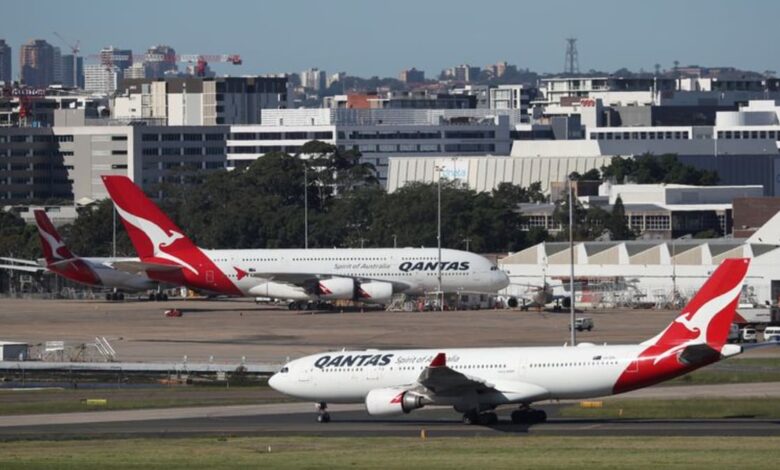Qantas to pay US$66 million fine after ‘ghost flights’ scandal

SYDNEY: Australian airline Qantas agreed to pay a US$66 million fine on Monday (May 6) after a bruising “ghost flights” scandal, following accusations it kept selling seats on long-cancelled trips.
The country’s competition watchdog said Qantas “admitted that it misled consumers” by advertising seats on tens of thousands of flights – despite those flights being cancelled.
Qantas will also fork out US$13 million in compensation to 86,000 travellers impacted by the cancellations and botched rescheduling.
“Qantas’ conduct was egregious and unacceptable,” said Australian Competition and Consumer Commission chairperson Gina Cass-Gottlieb.
“Many consumers will have made holiday, business and travel plans after booking on a phantom flight that had been cancelled.”
Qantas said that, in some cases, customers were booked on flights that had been cancelled “two or more” days prior.
Qantas chief executive Vanessa Hudson said the airline “let down customers and fell short of our own standards”.
“We know many of our customers were affected by our failure to provide cancellation notifications in a timely manner and we are sincerely sorry,” she said in a statement.
The US$66 million (A$100 million) fine is subject to court approval.
Long-dubbed the “Spirit of Australia”, 103-year-old national carrier Qantas has been on a mission to repair its reputation.
It has faced a consumer backlash stirred up by soaring ticket prices, claims of sloppy service and the sacking of 1,700 ground staff during the COVID-19 pandemic.
Qantas has previously defended selling seats on cancelled flights.
It argued that rather than buying tickets for specific seats, customers buy a “bundle of rights” and a promise the airline will “do its best to get consumers where they want to be on time”.
Qantas posted an annual profit of US$1.1 billion last year, capping a major financial rebound after the travel turbulence of the Covid years.
Veteran chief executive Alan Joyce announced his early retirement amid a barrage of criticism in September last year.





